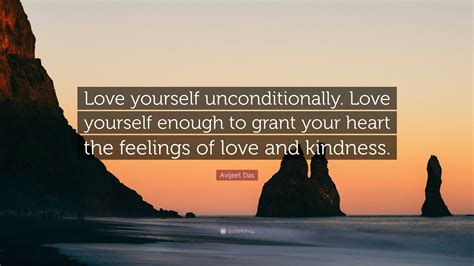Good Enough: A Guide to Loving Yourself Unconditionally
Are you constantly striving for perfection, feeling like you're never quite enough? Do you find yourself harshly judging your shortcomings and comparing yourself to others? If so, you're not alone. Many people struggle with self-acceptance and unconditional self-love. This guide explores the path towards embracing your imperfections and cultivating a deep, unwavering love for yourself. This isn't about becoming narcissistic; it's about recognizing your inherent worth and building a foundation of self-compassion.
What Does Unconditional Self-Love Really Mean?
Unconditional self-love means accepting yourself completely – flaws, imperfections, and all. It’s about cherishing yourself regardless of your achievements, failures, or external validation. It's not a fleeting feeling; it's a conscious choice you make every day to treat yourself with kindness, understanding, and respect. It's recognizing that your worth is intrinsic and doesn't depend on external factors like your appearance, achievements, or relationships.
Why is Unconditional Self-Love Important?
The benefits of unconditional self-love are profound and far-reaching:
- Improved mental health: Self-love fosters resilience, reduces stress, and helps you navigate challenges with greater ease.
- Healthier relationships: When you love yourself, you attract healthier, more fulfilling relationships. You're less likely to settle for less than you deserve and more capable of setting healthy boundaries.
- Increased confidence: Self-acceptance fuels self-confidence, empowering you to pursue your goals and live authentically.
- Greater self-compassion: You treat yourself with the same kindness and understanding you would offer a dear friend.
- Enhanced self-esteem: You value yourself and your unique qualities.
How to Cultivate Unconditional Self-Love
The journey towards self-love is a personal one, but here are some practical steps to guide you:
1. Identify and Challenge Negative Self-Talk
Pay attention to your inner dialogue. Are you constantly criticizing yourself? Replacing negative thoughts with positive affirmations is a powerful technique. For example, instead of thinking "I'm such a failure," try "I'm learning and growing from this experience."
2. Practice Self-Compassion
Treat yourself with the same kindness and understanding you would offer a friend struggling with similar challenges. Acknowledge your pain and suffering without judgment. Remember that everyone makes mistakes; it's part of being human.
3. Set Realistic Expectations
Perfection is an illusion. Set achievable goals and celebrate your progress, no matter how small. Focus on self-improvement, not perfection.
4. Forgive Yourself
Holding onto past mistakes and regrets prevents you from moving forward. Practice self-forgiveness and learn from your experiences. Remember, everyone makes mistakes; it’s a part of life.
5. Celebrate Your Strengths
Focus on your positive qualities and accomplishments. Make a list of your strengths and review it regularly to remind yourself of your capabilities.
6. Practice Self-Care
Prioritize activities that nourish your mind, body, and soul. This could include exercise, meditation, spending time in nature, pursuing hobbies, or engaging in activities you enjoy.
7. Set Boundaries
Learn to say no to things that drain your energy or compromise your well-being. Protecting your time and energy is crucial for self-love.
8. Surround Yourself with Positive People
Spend time with people who uplift and support you. Limit your exposure to negative or toxic individuals.
9. Seek Professional Help
If you're struggling with low self-esteem or negative self-perception, consider seeking professional help from a therapist or counselor.
Frequently Asked Questions
How long does it take to develop unconditional self-love?
There's no magic timeframe. It's a journey, not a destination. Be patient with yourself and celebrate your progress along the way. Consistency and self-compassion are key.
What if I'm struggling to accept my flaws?
Acknowledge and validate your feelings. It’s okay to feel imperfect. Focus on self-acceptance, not self-improvement. Remember that your flaws are part of what makes you unique and beautiful.
Is self-love selfish?
No, self-love is not selfish; it's essential. You can't pour from an empty cup. Taking care of yourself emotionally and mentally allows you to be a better partner, friend, parent, and contribute more positively to the world.
Can I still have self-love even if I’m struggling with certain aspects of my life?
Absolutely. Unconditional self-love means accepting yourself completely, including your struggles. Self-love isn’t about denying challenges but rather about embracing yourself with kindness and compassion, even when life is tough. It allows you to approach these challenges with more strength and resilience.
The journey to unconditional self-love is a continuous process of self-discovery and acceptance. By consistently practicing these strategies, you can cultivate a deeper and more profound love for yourself – a love that is unwavering and unconditional. Remember, you are good enough, just as you are.

